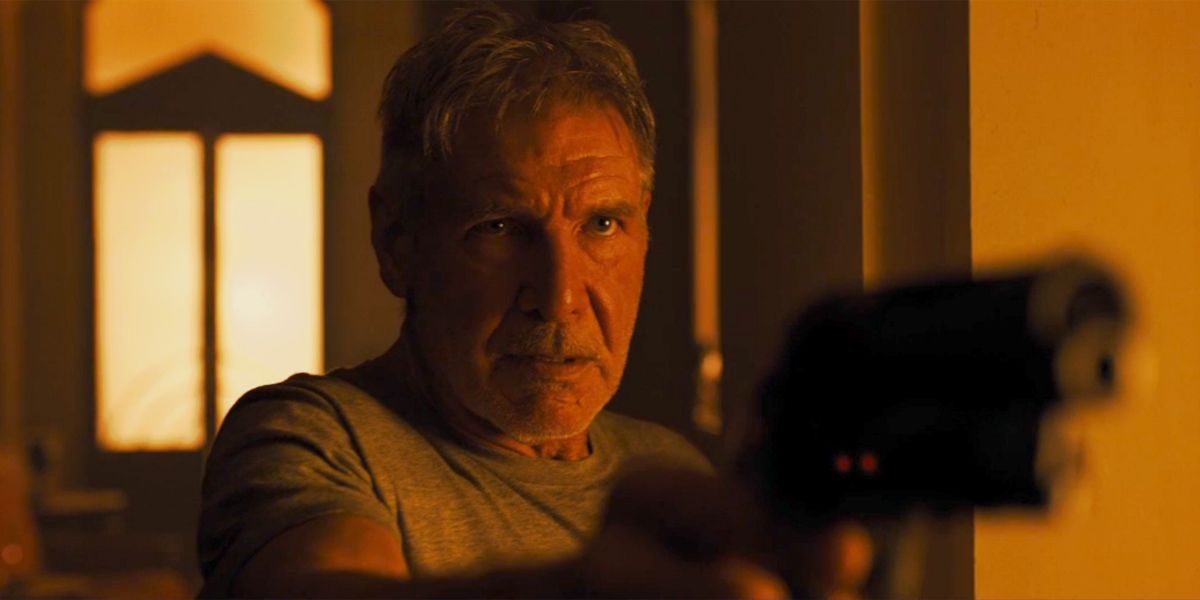Since the release of 2013’s Prisoners, Québécois director Denis Villeneuve has gone from being a critical darling to one of Hollywood’s most in-demand helmers. The commercial and critical success of his 2016 cerebral sci-fi epic, Arrival, cemented his reputation as somebody who could think big, both visually and conceptually, and allayed many fears that he was not the right match for his next project: Blade Runner 2049.
Ridley Scott’s original Blade Runner, which is now considered one of the high water marks of cinema, was released to mixed reviews in 1982. The film was a box office flop. The neo-noir aesthetic, and dark philosophical story didn’t connect with audiences at the time. The film also had the misfortune of opening within weeks of two other beloved sci-fi features, Star Trek II: The Wrath of Khan, and E.T. the Extra-Terrestrial. The studio-imposed voiceover and happy ending (featuring aerial footage taken from the opening of Stanley Kubrick’s The Shining) didn’t help endear the film to audiences or critics, either.
RELATED: Blade Runner 2049 Keeps Order with Beautiful Trailer
The long-gestating sequel, Blade Runner 2049 has been in the works for decades. In 1999, a followup was announced based on K.W. Jeter’s 1995 novel Blade Runner 2: The Edge of Human, a literary sequel to both Scott’s original film, and the novel it was based upon, Philip K. Dick’s Do Androids Dream of Electric Sheep. That project was shelved due to rights issues. In 2007, Scott told the audience at San Diego Comic Con that he was working on a sequel called Metropolis, which was set in the Blade Runner continuity but did not follow-up on the story and characters of the first film. That, too was shelved, as was Purefold, a series of made-for-television short prequels.
A Scott-directed sequel was again announced in 2011, and eventually evolved into Blade Runner 2049, with Scott producing and Villeneuve directing. Hampton Fancher, who wrote the original, penned the follow-up.
Expectations are high for Villeneuve’s sequel. While there is little doubt that the director has the chops to pull it off, many fans of the original are adopting a wait-and-see approach. This side-by-side comparison of the Blade Runner 2049 trailer with footage from the 1992 original may go some way in allaying fears that the sequel won’t work.
Posted to YouTube, the comparison video was made by the folks at the Internet Movie Database (IMDb), and shows how the sequel visually echoes the original, not only in terms of the visual aesthetic but with respect to specific shots, the elements they contain, their camera angles, their framing and locations. The selection of sequences from the original also invites viewers to speculate about the characters in the upcoming sequel. Who is human? Who is a replicant? Who are the heroes and the villains?
RELATED: First Blade Runner 2049 Trailer Races in With New Pages to the Story
This comparison of new footage to scenes from the original suggests that the sequel is a loving tribute to the 1982 classic, and that Villeneuve and his crew have successfully extrapolated a future that builds on Scott’s early-80s vision of Los Angeles in 2019. However, we’ll have to wait until October to see whether Villeneuve and his crew have made a worthy follow-up to what is now considered one of the greatest science-fiction films of all time.
Directed Denis Villeneuve (“Arrival,” “Sicario”) from a script by Hampton Fancher and Michael Green, Blade Runner 2049 stars Ryan Gosling, Harrison Ford, Ana de Armas, Robin Wright, Jared Leto, Barkhad Abdi, Lennie James, Mackenzie Davis and Sylvia Hoeks. Executive produced by Ridley Scott, the film opens Oct. 6.

